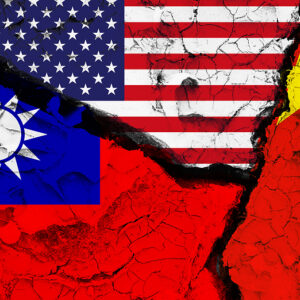America’s detente relationship with China regarding Taiwan has had enormous benefits for all three countries for the last five decades, but an unsettling slide toward political posturing and rhetoric puts the future of that relationship at risk.
The United States must affirm its commitment to the defense of a democratic Taiwan while keeping its word to mainland China that both the island and the mainland are recognized as one nation.
The breakthrough in American-Chinese relations came in 1972, when President Richard Nixon and Chinese Premier Zhou Enlai corresponded through the Three Communiques, putting forward their respective country’s foreign policy positions regarding Asian foreign policy. From the first communique, the United States acknowledged one China with two systems.
In 2022, the United States imported more than a half-trillion dollars in goods from China while selling more than $150 billion to the communist country, according to the U.S. Census. That level of trade continues to help put food on the tables of millions of American and Chinese families, and keep roofs over their heads.
Almost 40 years ago, in 1985, we were doing just under $4 billion in trade. Today, China has become our third-largest trading partner, behind our close neighbors, Canada and Mexico.
The American-Chinese detente in Taiwan works, and it works really well.
But, in its governing relationship with Hong Kong, China has crushed democratic protests against its totalitarianism, in contradiction betraying its commitment to allow Hong Kong to stay somewhat autonomous until 2047. The communist regime can’t be trusted to keep its word regarding respecting democratic ideology.
Hong Kong is not Taiwan. Last year we exported $43 billion in goods to Taiwan and imported almost $92 billion — a trade deficit. In 2022 we exported $26 billion in goods to Hong Kong and imported nearly $5 billion — a trade surplus.
Taiwan is a bit bigger than the state of Maryland. Hong Kong is less than half the size of Yosemite National Park. If war comes, we will commit our blood and treasure to defend Taiwan, to whom we lose money, but have roundly ignored Hong Kong, from whom we profit.
Fiscally, it’s an indication of an irrational Pacific foreign policy. Ideologically, it’s an example of an inconsistent commitment to democratic ideals. No wonder China may be confused about our intentions in the Pacific.
We need a sound, comprehensive, peace-seeking Pacific policy, solid to the core on supporting liberty but respecting other countries regarding their right to self-determination — even if they oppose our values. In the case of Taiwan, China has agreed to abide by Taiwan’s self-determination, while it doesn’t threaten China’s communist integrity.
It’s a policy that has worked for half a century. If it ain’t broke, don’t fix it. If it breaks, let China be the one to break it. Let’s be faithful to the detente as long as it provides a practical way forward that doesn’t dishonor our sacred bond to our values.
It is a hard path to navigate. China is opposed to democracy ideologically and has recently upped its posturing against Taiwan’s autonomy too. We have increased our ideological investment in a democracy thereby showing direct support in person to its people.
We don’t need to do that.
China should already know our country is committed to an autonomous Taiwan, to the point of laying down lives for it. That’s all we’ve done for the last 30 years in Iraq and Afghanistan. We don’t need to rattle our swords or fuel the flames of a war of words until it turns into a war of fire and death.
The United States needs to reinvest in our commitment of 1972. We commit to defending Taiwan but should equally commit to detente with China. We need to be firm but dispassionate in our policy to do it. The people of the United States and Taiwan are joined by our mutual regard for democracy, but that unity shouldn’t agitate for a Taiwan independent of China.
If China did invade Taiwan, our policy would change. War will ensue. But that hasn’t happened.
Over a billion people will be helped in the 21st century if the detente endures. Re-enforcing respectful, enthusiastic dialogue could lead to exciting new opportunities for both nations, just as it did in 1972.
That’s the way forward. If we need to battle China, let’s do it in the marketplace — battle them by making bucks, not shooting bullets. More business, and less bravado, that’s what’s needed. We need to grow households, not bomb houses.
In some ways, China hasn’t given us a reason to trust them. But we should bury the hatchet and not presume the worst in each other. It’s hard to do. If we fail, we fail, but we must try. At least then, American and Chinese kids have a chance at an intact roof over their heads and food on the table and will know that we did our best by them.


